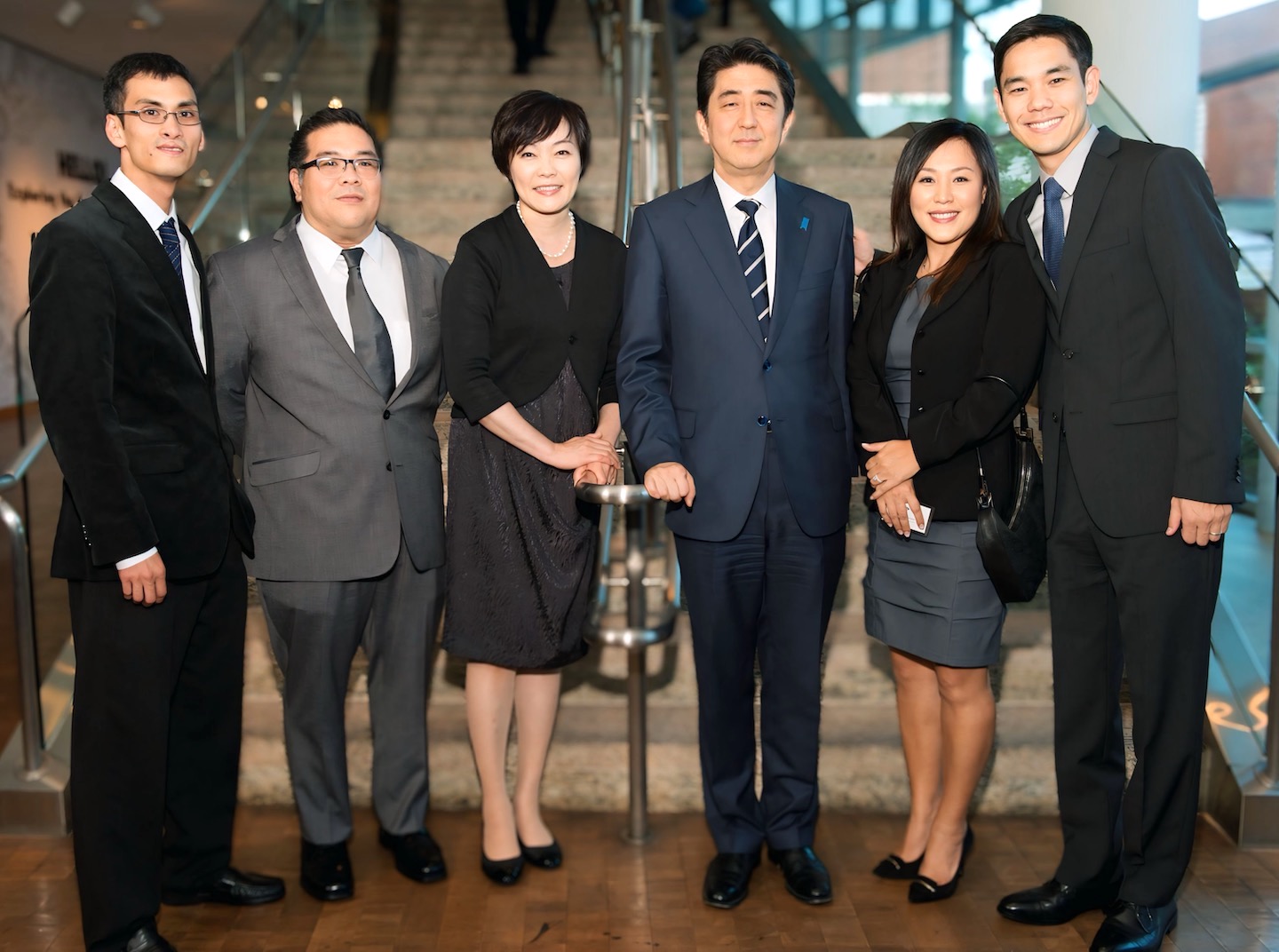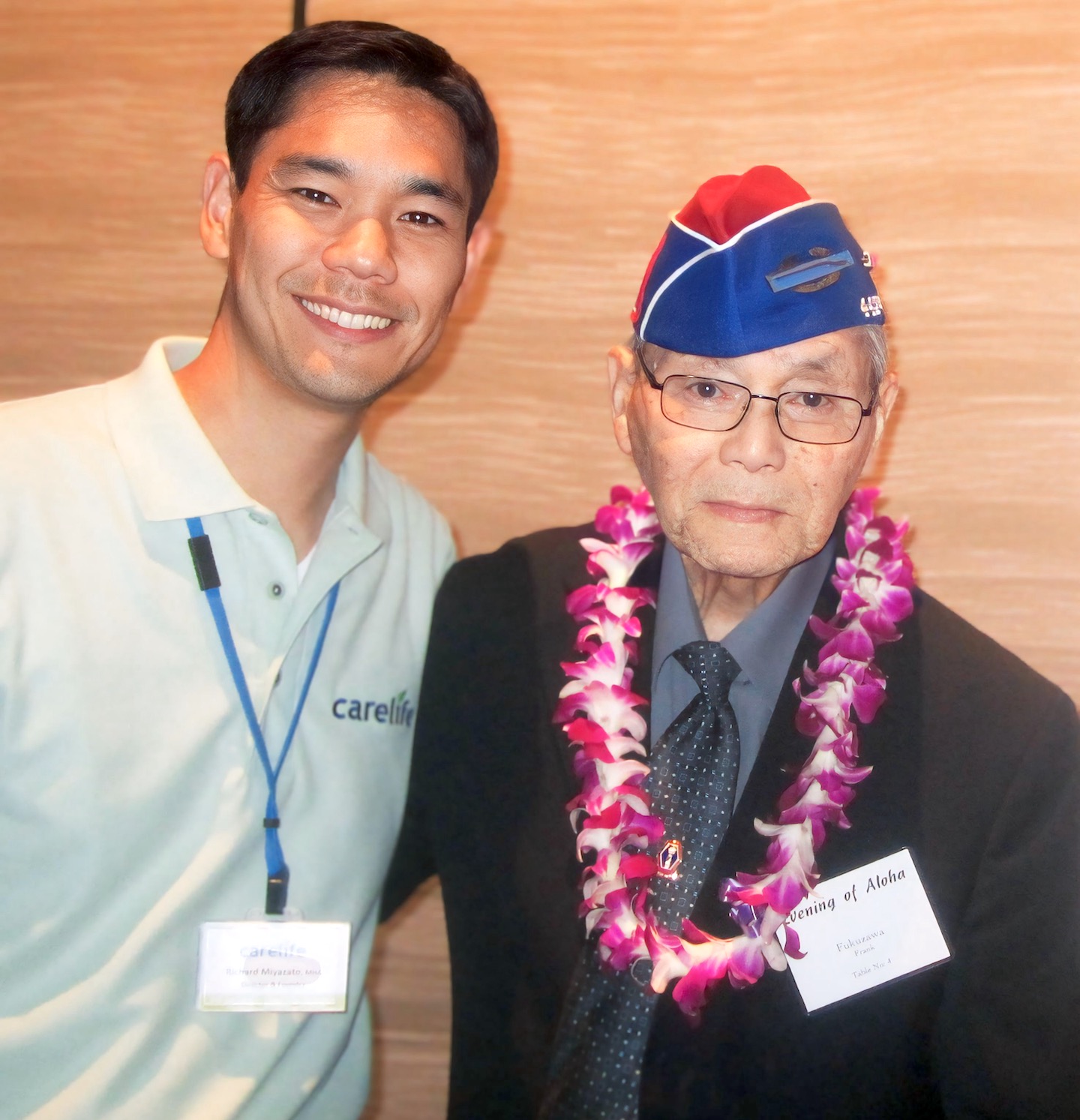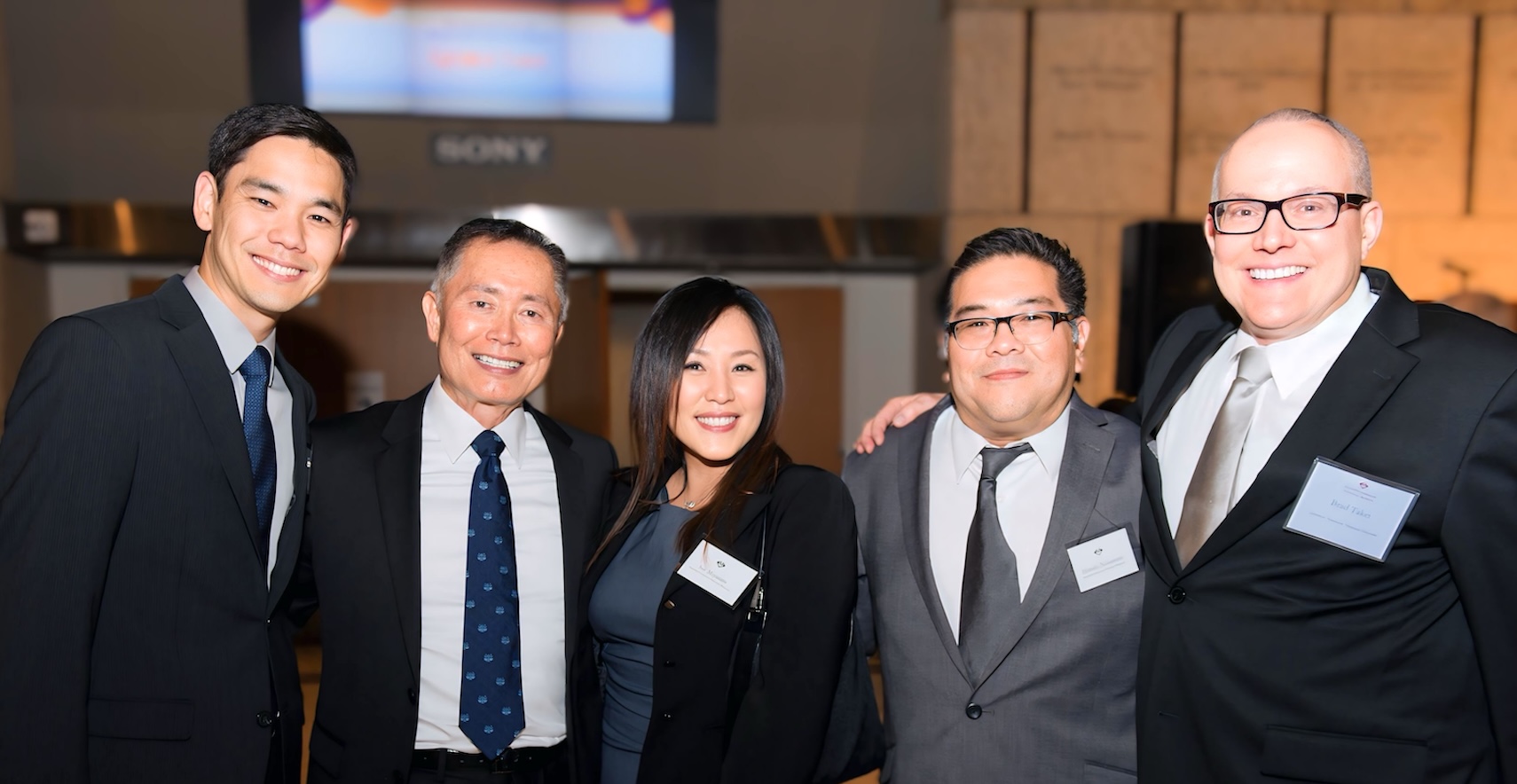Pictured at a JANM VIP reception (from left) are Carelife’s
Richard Miyazato, actor George Takei, Sue Miyazato, Hiroshi Nakamoto and Brad Takei. (Photo: Courtesy of Richard Miyazato)
Carelife provides home care for the elderly
and works to educate and assist families with important life choices.
By Gil Asakawa, P.C. Contributor
Richard Miyazato is in his early 50s, but he has been on a personal journey to provide elder care for more than 15 years. That’s when he founded Carelife, a Torrance, Calif.-based company in the Los Angeles area that offers home care for older people with illnesses or who are homebound with conditions such as dementia or Alzheimer’s. He’s the CEO of the company, which launched in 2010.
But his interest in helping people goes back more than a decade before that.
“So, it all started back in 1999, actually way back after I graduated from college and I worked a couple of years at Mitsubishi trading operation, but it just wasn’t my calling,” Miyazato explained. “So, I reshifted my career path, went back to school, studied health care and, yeah, it was always something that I had internally that I wanted to go into senior care. I think it is just my calling.”
About that time, he saw an ad in the Rafu Shimpo newspaper for a caregiver, a Japanese-speaking advocate for a Japanese man in a hospital. Miyazato grew up like many Japanese Americans taking Japanese classes, but the serious ones, not the Saturday morning classes. He went every night after school.
“I could be an advocate for this patient,” Miyazato recalled thinking. “So, I called this company, and I started as a caregiver just because I wanted to kind of get my feet wet and just to understand what this was all about.”
After his Japanese patient went back home, Miyazato contacted the company that had hired him. “I went up to the CEO, and I said, you know what, I really enjoyed this. Is there any way that I could help, if you could hire me and help develop some kind of a home care division assisting the Japanese community?”
It wasn’t interested at first, but then the company called him back and asked him to start a division providing home care. “And so that was back in 1999. I helped launch this division at this company. And I worked there until about 2009, 2010.”
Meanwhile, his passion for home care hit closer to home in 2006, when his mother was diagnosed with Parkinson’s Disease. He explained in an article written for Black History Month about the inspiration of Muhammad Ali, the champion boxer who late in life suffered from Parkinson’s Disease but lit the 1994 Olympic Torch in Atlanta. Miyazato became involved in the Parkinson’s community, which eventually led him to work with the Muhammad Ali Parkinson’s Center.
His mother, who was from Fukushima, was just in her 60s. She later developed Alzheimer’s. Miyazato, an L.A.-born Shin-Nisei, helped both his parents deal with their health needs — a challenge of which many Japanese Americans with aging loved ones are familiar.
“I think that was really the catalyst, for me to kind of start helping my parents, especially my father, just really to navigate this whole complex system and try to understand it more deeply, to see what we as a family, especially as a Japanese community, could do.”

In this undated photo taken at JANM, pictured (from left) are Hitoshi Nakamura, Hiroshi Nakamoto, Akie Abe (widow of Shinzo Abe), Shinzo Abe (former prime minister of Japan), Sue Miyazato and Richard Miyazato. (Photo: Courtesy of Richard Miyazato)
In California and especially the L.A. area, there are many community organizations, including Keiro and the Little Tokyo Service Center, that can also offer help to assist families with caregiving needs, questions and services. But finding the necessary hands-on help or in-home care is often complex and difficult to navigate. “When it came down to the specifics of [a] neurology doctor I should see, it’s just the whole slew of questions that was very challenging,” said Miyazato.
He realized, “I’m pretty sure there are a lot more Japanese Americans [and those in the] Japanese community that are going through the same trials and tribulations that we were going through.”
For Parkinson’s, for example, Carelife created a trademarked physical therapy program that differentiates it from other care providers.
“We partnered with a doctor of physical therapy, and we created, for example, an exercise program called Moving With Caregivers, which is pretty unique because we try to help people with Parkinson’s do a lot of these easy-to-do exercise programs at home to help with their muscle atrophy and stuff like that,” he said.

Richard Miyazato with 442nd RCT veteran Frank Fukuzawa (Photo: Courtesy of Richard Miyazato)
And though Carelife welcomes patients of all backgrounds and offers services in English, Japanese, Korean, Chinese, Spanish and more, Miyazato is especially proud to be part of the Japanese American community. He’s involved in and donates to a number of organizations, including the Go for Broke National Education Center, for which he provides door-to-door transportation for veterans to attend GFBNEC events such as its annual gala.
He has also donated electric beds to Keiro to make the quality of life better for its patients. Like many of his interactions, he was inspired by someone he met, a terminally ill patient who wanted to be able to continue having some independence while being cared for. He bought 22 beds for the Keiro facility. And yes, he still raises funds for the American Parkinson’s Disease Assn.
“We are more than a caregiving company,” he wrote in an enthusiastic email. “We help educate family members and give back to the community that supports our business!”
For more information on Carelife and its services, visit www.carelifeinc.com.




